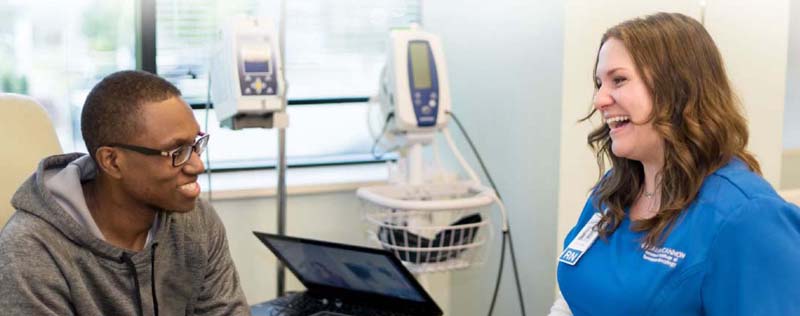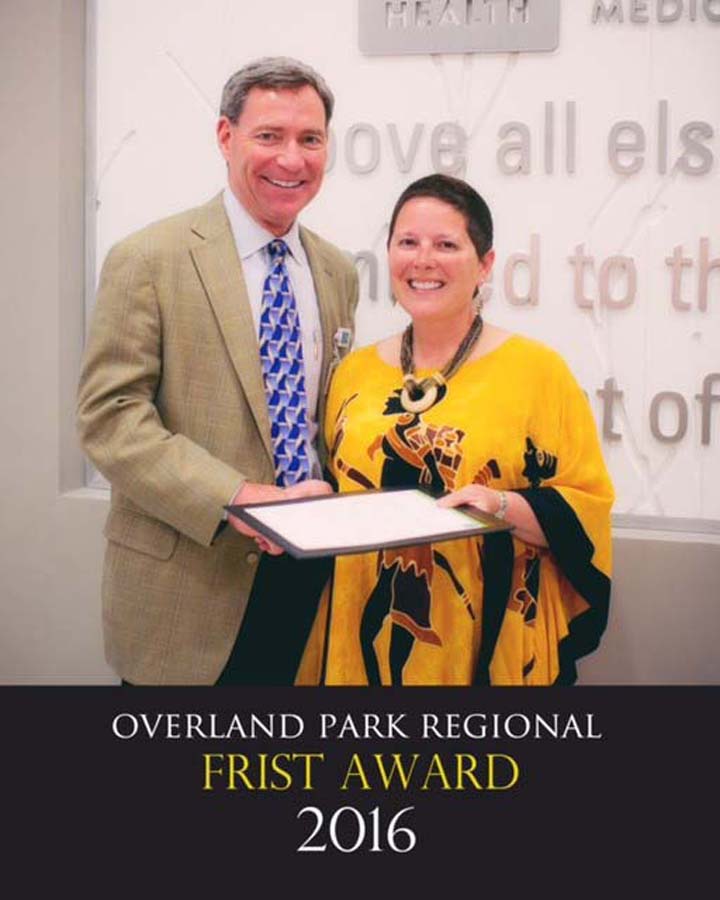
This week, during Oncology Nursing Month and also Nurses Week, we recognize the important role nurses who specialize in cancer play in navigating the cancer journey and honor their commitment to caring for those facing the disease. 
Yvonne Ward, RN, MSN, OCN, nurse navigator specializing in breast health at Sarah Cannon at Overland Park Regional Medical Center in Kansas City, shares how she became a nurse and what inspires her to come to work every day. Yvonne recently won the hospital's Frist Humanitarian Award, Hospital Corporation of America's (HCA) highest honor at the facility, as a result of her unwavering support of her breast cancer patients. Yvonne has been a part of multiple global nursing missions, is actively involved with the American Cancer Society and even shaved her head to raise $5,000 for the Hope Lodge, a charity that offers temporary lodging to cancer patients while receiving treatment in the Kansas City area. Yvonne continues to keep her hair this length as a tribute to her patients experiencing hair loss from chemotherapy treatment.
How long have you been a nurse?
I have been a nurse for 12 years and an oncology nurse the entire time.
Why did you become a nurse?
This is actually my second career. I joined the U.S. Air Force after graduating high school, so I could have enough money to go to nursing school. My original intent was to enlist for four years, save my money, then go directly to nursing school. My plans changed and I ended up staying on active duty for 20 years, retired and then graduated from the nursing program at Minot State University in North Dakota. As a young girl, I read the Cherry Ames, Student Nurse books, which inspired my dream of becoming a nurse. That was a young girl's dream, of course. As I got older, my drive was simple - I wanted to help others.
What is your favorite part about your job?
I am often asked this question. The answer is easy - the patients. I work with talented and compassionate surgeons, oncologists, nurses and staff that inspire me, but what makes coming to work every day fulfilling is the connection I get to make with patients. They allow me to enter into their lives and give me their trust at a very vulnerable time. That means so much to me. Patients are kind when they say they are lucky to have me during their cancer journey, but I beg to differ - I am the lucky one.
What is the most important thing you tell patients facing a cancer journey?
As a breast navigator, patient education and advocacy are very important to me. I encourage patients facing a cancer diagnosis not rush into treatment decisions, but rather to take the time to learn about their options and make an informed decision. It is important that a patient go to all recommended consultations with their physicians to understand their diagnosis and options first. I have seen patients who rushed into surgery because of fear, when chemotherapy may have been the most appropriate treatment.